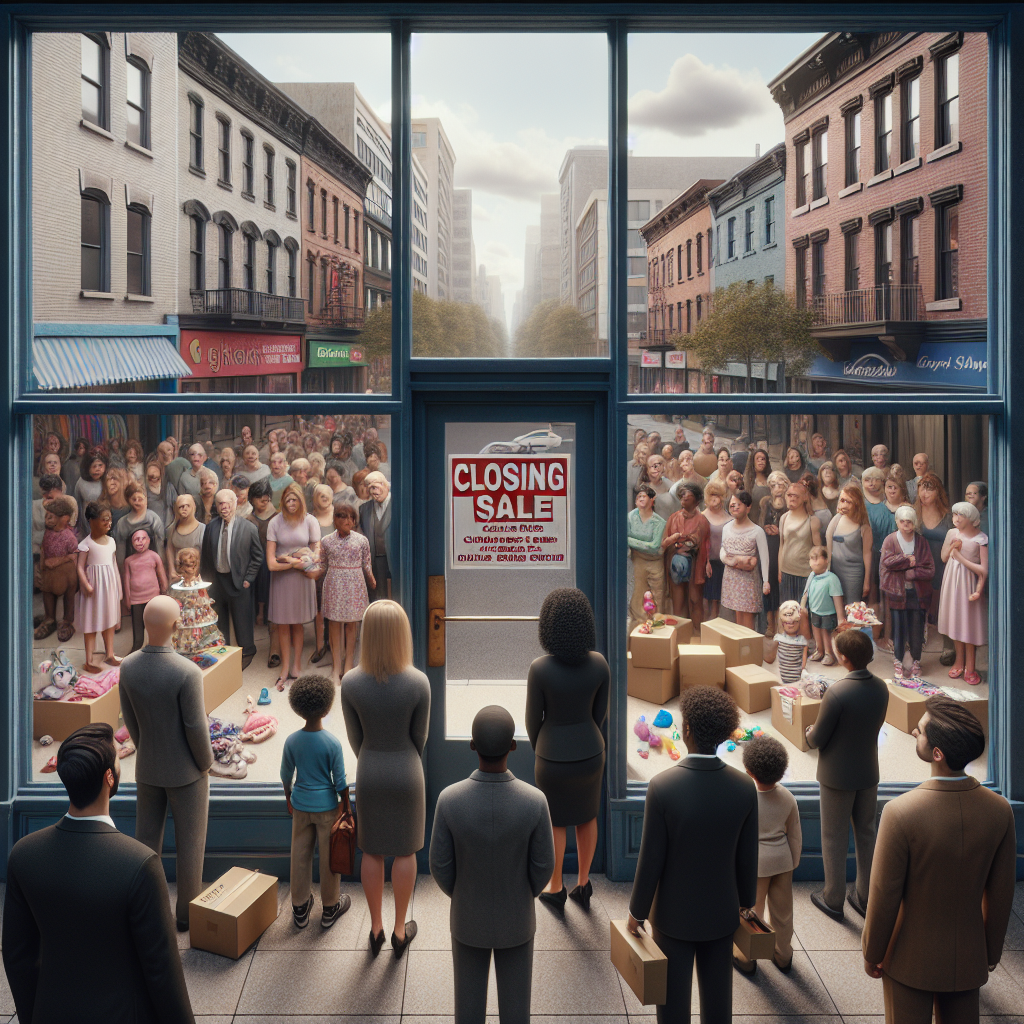Carter’s to Lay Off 300, Close More Stores as Tariffs Decimate Profits
Carter’s, the renowned children’s apparel retailer, is facing significant challenges in maintaining profitability as it grapples with the impact of new import tariffs. The company announced plans to lay off 300 employees and close 150 retail locations in North America over the next three years. These decisions mark a critical juncture for a brand already struggling to navigate the turbulent waters of a competitive retail landscape.
Tariffs, which have surged in recent years, have put immense pressure on retailers, particularly those reliant on imported goods. For Carter’s, the situation has become increasingly dire. The company’s profit margins have been squeezed as the costs associated with importing apparel have risen sharply. The new duties have not only affected pricing strategies but have also altered consumer behavior, leading to a decline in foot traffic in physical stores.
Carter’s has long been a staple for parents seeking quality children’s clothing. However, the combination of rising costs and changing shopping habits has forced the company to rethink its operational strategies. The decision to shut down 150 locations represents a significant shift in Carter’s retail footprint. This move is aimed at consolidating resources and focusing on more profitable areas of the business.
Historically, Carter’s has been known for its diverse range of products and strong brand loyalty among parents. However, as the retail environment evolves, so must the strategies employed by the company. The closures will primarily target underperforming stores, which have struggled to generate sufficient revenue to justify their operations. By reducing its brick-and-mortar presence, Carter’s hopes to allocate resources more effectively, investing in online sales and enhancing customer experience in remaining stores.
The layoffs, while unfortunate, are part of a broader effort to streamline operations and improve financial health. Carter’s management has indicated that these reductions are necessary to align the workforce with the company’s revised strategic priorities. As the retail industry continues to shift towards e-commerce, companies like Carter’s must adapt quickly. This transition is crucial not only for survival but also for future growth.
Moreover, the economic landscape presents additional hurdles. Inflation and changing consumer spending patterns have led to increased scrutiny of retail strategies. Parents are becoming more selective about their purchases, often prioritizing value and quality. Carter’s must respond to these shifts by offering products that resonate with their target audience while also managing costs effectively.
Carter’s commitment to quality and customer satisfaction remains strong. However, the current environment necessitates a reevaluation of how the company connects with consumers. Investing in digital marketing and enhancing the online shopping experience could prove vital in attracting new customers and retaining existing ones. Expanding the e-commerce platform will allow Carter’s to reach a wider audience without the overhead costs associated with physical stores.
In addition to focusing on e-commerce, Carter’s should also consider partnerships and collaborations that can expand its market reach. Collaborating with influencers or other brands that align with their values may provide a fresh avenue for growth and customer engagement.
The decision to close stores and lay off employees is never taken lightly. However, in an era marked by rapid change and uncertainty, it is essential for companies like Carter’s to make tough choices that prioritize long-term viability. While the immediate impact may be difficult, these steps could pave the way for a more sustainable future.
As Carter’s navigates these changes, the retail community will be closely watching. The ability to adapt to fluctuations in the market and consumer behavior will ultimately determine the company’s success. For now, Carter’s is taking decisive action to address the pressures of tariffs and shifting consumer preferences, hoping to emerge stronger in the coming years.
In conclusion, the challenges faced by Carter’s highlight the broader issues affecting the retail industry. The need for flexibility and innovation has never been more critical. By making strategic decisions now, Carter’s can position itself for a future that meets the needs of modern consumers while maintaining its reputation for quality children’s apparel.
retail, business, tariffs, children apparel, Carter’s
